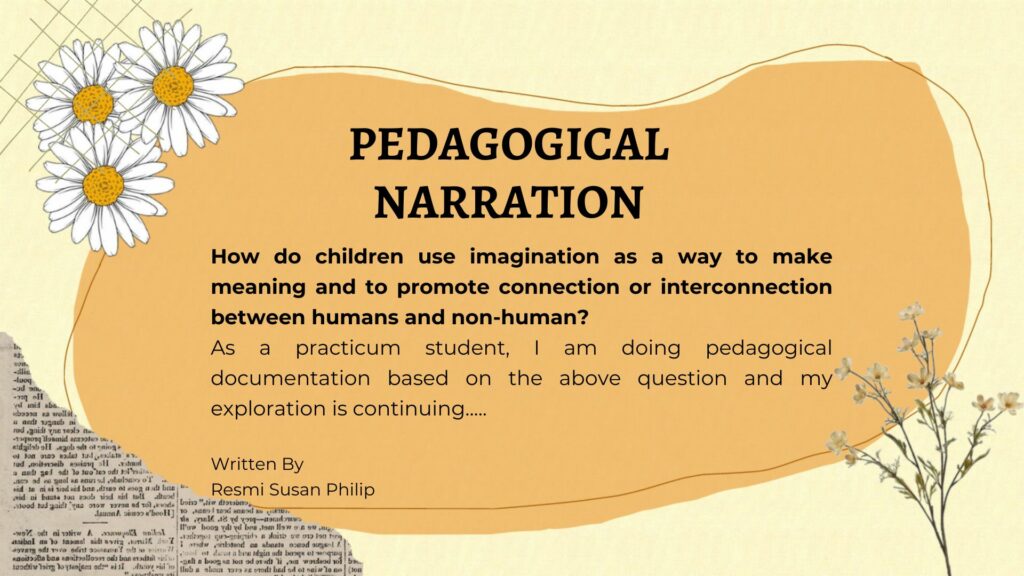My Pedagogical Narration

Pedagogical Commitment
- Helps children in creative exploration and imagination
- Help in Learning by themselves through exploration and connection between humans and non-humans
- To support the growth and Well- well-being of the child
My pedagogical commitment is “children’s imaginations and creative exploration and the connection between human and non-human”. Are the children capable of doing themselves to their full potential or do we have to support them or does the relationship with people, place, and material help them? As BCELF principle 1 states Children are strong, capable in their uniqueness, and full of potential. All children are born with unique talents and abilities. BCELF principle state 5 People build connection and reconnection to land, culture, community and place. Children develop a sense of belonging when they connect with land, community and environment and local histories. Children’s relationship with land, community and place enrich there boundless imagination and create a sense of adventure will recreate our societies in future. Each child is considered as a gift and living and growing in reciprocal relationships with people, place, and the environment. This reciprocal relationship with people, materials, and the environment helps children to achieve their full potential. My pedagogical narration and my commitment will help me to continue my exploration of the children’s imagination and the ability to learn by themselves or a group and their relationship with human and non-human.